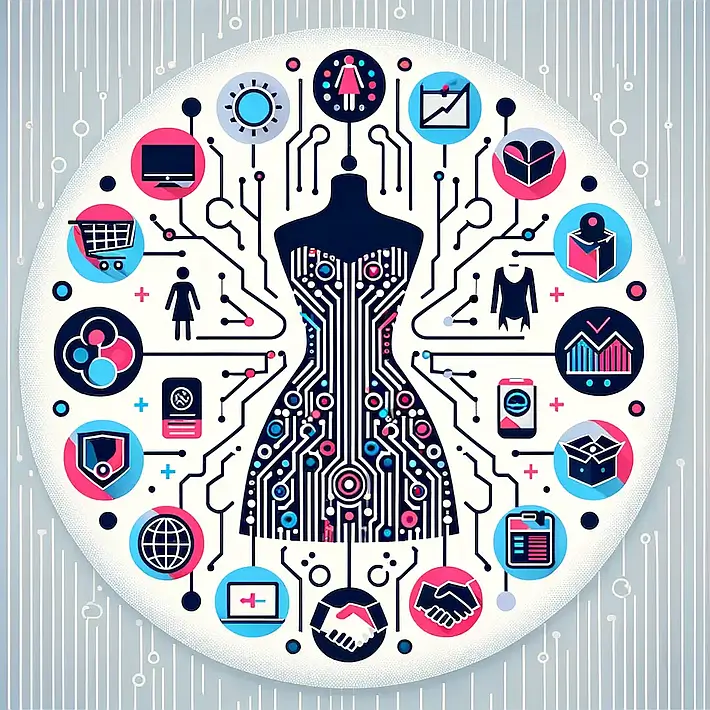Elevating the Fashion Industry with Cutting-Edge AI Solutions
Discover AI tools that empower fashion brands and retailers to personalise customer experiences, streamline supply chains, and predict trends.
The fashion industry is a dynamic and highly competitive space that thrives on innovation and trends. Artificial Intelligence (AI) is playing an increasingly significant role in transforming this industry, empowering brands and retailers to innovate and operate more efficiently.
One of the major applications of AI in fashion is personalised shopping experiences. Through AI algorithms and machine learning, retailers can create highly personalised product recommendations for customers based on their browsing history, preferences, and past purchases. For instance, the UK-based company Thread uses AI to provide personalised style recommendations, helping consumers find clothes that suit their style and fit.
Another game-changer is AI-powered fashion design and trend forecasting. By analysing vast amounts of data from social media, fashion shows, and market trends, AI tools can predict what styles and items are likely to be popular in the coming seasons. This allows fashion brands to make data-driven decisions when designing new collections. For example, Edited, a company available in the UK market, offers real-time analytics that help retailers make informed product decisions and stay on top of trends.
AI also plays a critical role in inventory management and supply chain optimization. By predicting demand, AI can help retailers manage inventory more efficiently, reducing both stockouts and excess inventory, which can be costly. Moreover, AI can optimise logistics and shipping, leading to cost savings and more timely deliveries. Vue.ai, whose services are available in the UK, offers AI solutions for inventory management and other retail processes.
In an age where online shopping is booming, virtual fitting rooms are a crucial innovation for fashion retailers. AI-powered virtual fitting technology allows customers to virtually 'try on' clothing through their devices. This not only enhances the shopping experience but also reduces the likelihood of returns due to size or fit issues. Metail, a UK-based company, offers a virtual fitting room solution that allows consumers to create a 3D model of themselves and try on clothes virtually.
Sustainable fashion is a growing concern for consumers, and AI can help address this. AI tools can analyse materials and supply chains to ensure they meet sustainability standards. Additionally, AI can help in recycling by identifying materials that can be reused. A notable example is Eon, whose CircularID Protocol enables the creation of digital identities for garments, supporting circular economy models in the fashion industry.
Chatbots and customer support in fashion retail are significantly improved by AI. Chatbots can assist customers in finding products, answering questions about sizing, and even offering style advice. This improves customer satisfaction and can increase sales. For instance, Ubisend, based in the UK, provides AI chatbot solutions that can be tailored for fashion retailers.
In conclusion, AI is reshaping the fashion industry at a fundamental level. From personalised shopping experiences and trend forecasting to inventory management, virtual fitting rooms, sustainability, and customer support, AI tools are enabling fashion brands and retailers to innovate and thrive in a competitive market. As the fashion industry evolves, embracing AI is becoming not only advantageous but essential for those seeking to stay at the forefront of fashion and retail.
Furthermore, AI’s role in consumer analytics is vital. Understanding consumer behaviour is key for fashion retailers to market and sell their products effectively. AI tools can analyse customer data to identify buying patterns and preferences, which can be used to create targeted marketing campaigns. This level of customization increases engagement and, ultimately, sales.
Moreover, AI in product visual search is revolutionising the way customers find products. Instead of searching with text, customers can use images to find similar products. UK-based company Cortexica offers visual search and image recognition technology that allows customers to take a picture of an item and find similar products in an online store.
Additionally, AI is helping in counterfeit detection. The fashion industry often faces challenges with counterfeit products. AI algorithms can analyse product images and descriptions to identify potential counterfeits. This not only protects brand integrity but also ensures customer trust and satisfaction.
In the era of social responsibility, consumers expect transparency and ethical practices from fashion brands. AI can help in monitoring and ensuring compliance with ethical standards across the supply chain. By analysing data from suppliers and production processes, AI can help brands ensure that their products are made under fair and ethical conditions.
In essence, AI is the lynchpin for the future of the fashion industry. It provides a myriad of solutions that are instrumental in improving efficiency, creativity, sustainability, and customer satisfaction. Fashion brands and retailers that effectively leverage these AI tools will be well-positioned to excel in an ever-evolving and demanding market. The integration of AI is not merely a trend but an essential progression for modern fashion enterprises.

